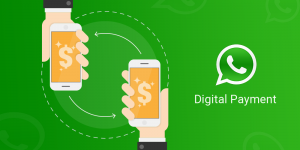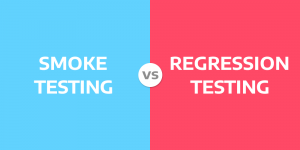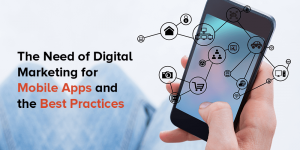
You must have completed the process of developing, designing, iterating, planning a strategy and testing your app now it’s the right time to launch your newly developed app in the market. But launching an app isn’t that easy. Marketing a new app can be extremely stressful.
The success of launching a new app can be assured if the launch is well planned in prior. This will also hold the potential to make people aware of the newly launched app, which will drive downloads in large numbers taking your app store rankings to a higher side. However, the results are not always positive even after trying so hard. Some app promotions can also lay down negative impacts on your app.
In order to assure the failure of your new app, proper analysis can be conducted on the common mistakes made by the hire app developer’s and those mistakes then can be avoided by you to ensure the success of your app.
To ensure great success on the launch of your app, the below-given points are the ones you need to avoid when you are on the go to launch your app in the market.
1. Failing to capitalize on Pre- Launch Opportunities
You must be in a misconception that the app promotions initiate when it is live in the store, correct? No, but it’s not true. This misinterpretation ultimately leads many of the app publishers to lose on the opportunities they could have taken advantage of. Ensure to promote and advertise your app before it is live on any of the websites. With the help of landing page you can get a mailing list with the help of it creating a buzz via social sharing will be easy and effective. Added to this updated teaser on your blog, social media or through e-mail can engage the community increasing their eagerness of downloading the app.
2. Not investing time and effort in App Store Optimization
Another big mistake is the ignorance of considering the need for ASO. Many of us take ASO as set it and forget it and do not feel the need of investing money in ASO. This is where we lack and make big mistakes. Constant Optimization of the keywords with the help of varied competitive insights can help in creating a benchmark of your results. It will not only calibrate the expectations but will also help you adapt and respond to timely changes in the rankings. Organic Traffic brings more than half of traffic for your app why do you wish to avoid optimizing this channel?
3. Not focusing on your App Store Creativity
The app icon without a doubt gives users the very first impression of your app, but to your surprise when the users tap through your app page and get to see your screenshots and preview videos that are when you get to attract the majority of the users converting them all into app buyers. This will only be possible if the emphasis is laid on the improvisation of the app which will improve your store conversion rates. Do not forget to put in your consideration that the first two screenshots on your page play a major role in converting visitors.
4. Underestimating the consideration of Reviews and Ratings
Many of us believe that reviews and ratings appear organically. With the increase in app usage, users start rating you. Ratings are important not only for ranking algorithms but also for social proof. Till the time you get at least 5 user reviews your average star rating fails to be visible. Poor ratings and reviews will never let your app be successful. Focus on getting all those reviews and ratings by beta testers, advocates and customers via e-mails.
5. Failing to set a budget for Paid Acquisition
Organic traffic will not bring in much of the traffic; paid acquisition is sure to increase your traffic and helps you to reach your ROI goals quickly. In order to boost your traffic, set aside some budget for your app focusing on your targeted audience which will ultimately translate into better rankings.
6. Not Focusing on your Web Presence
After considering all the important factors why miss on your web presence too? On the launch of your site, in order to move visitors to the app store it’s essentially important to involve a CTA or smart redirect banner. Including content marketing and building, a blog on your site in your promotion strategy is sure to attract many users. This will not only boost SEO but it will continue to maintain and increase the engaged traffic to your app store over time.
7. Failing to integrate offline marketing activities
The transition to mobile can be made easy for the new users by integrating the traditional campaigns with a mobile call to action, in-store marketing, TV & radio spots, events, publicity stunts or billboard advertising, with a short URL or a QR code can get you more mobile conversions.
8. Considering PR to be the final destination
Nobody is interested in promoting your app as it’s new. So how would you get the attention of the marketers? Building a publicity campaign and grabbing the opportunities along with targeting local news, niche publications, bloggers or social media influencers will help your app gain much popularity.
9. Ignoring the advantage of Discovery Platforms
The discovery platforms like PreApps, AppGratis and AppPicker can get your app a lot of engagement and targeted audience at minimal cost. These sites features, reviews and share your app to the users making them aware on the existence of your app.
10. Failing to build Virality in your App Experience
Last but not the least; Virality is the element that many of us ignore before the app is live. What actually does Virality mean to your app? It basically includes in-app strategies like referral campaigns, social sharing or user-generated content campaigns which spreads good word about the app in large number of users. Avoiding all the above-mentioned mistakes will let your app launch to be more effective and impactful.






